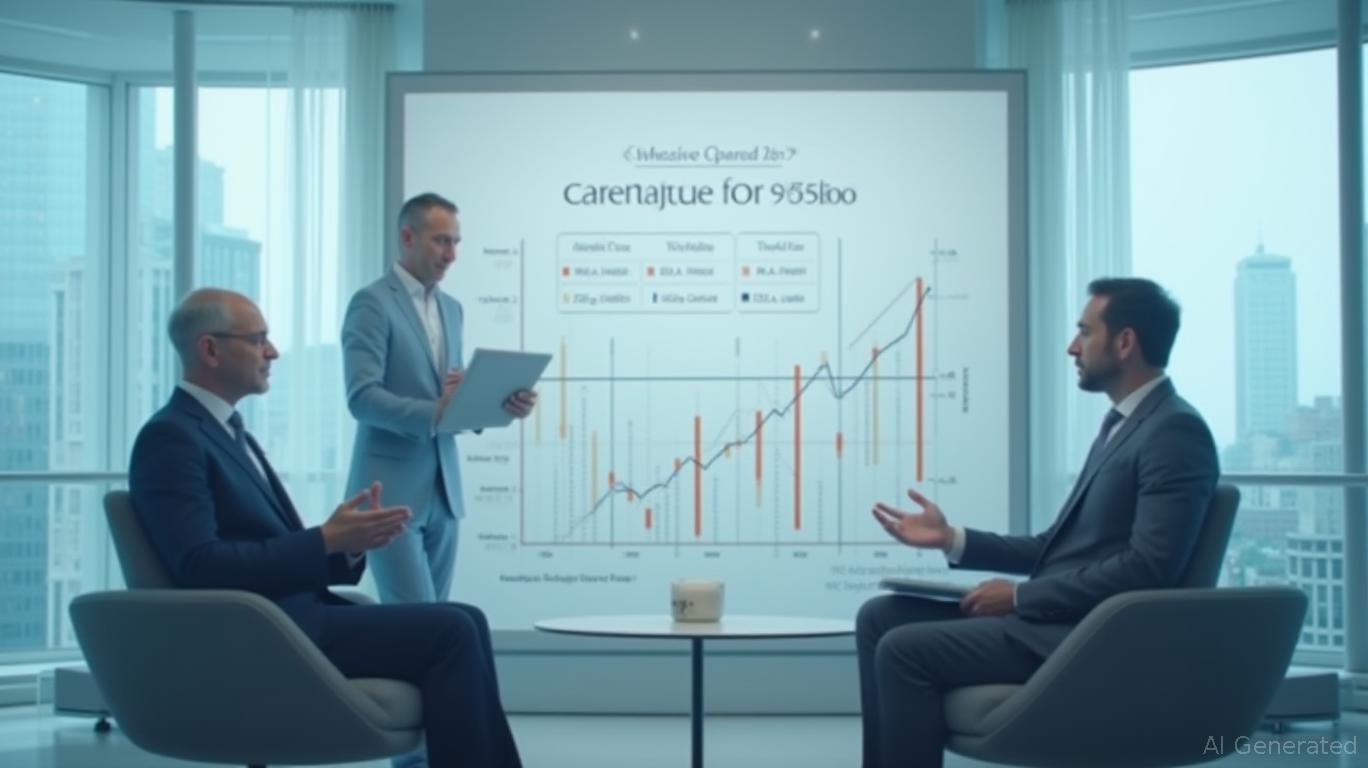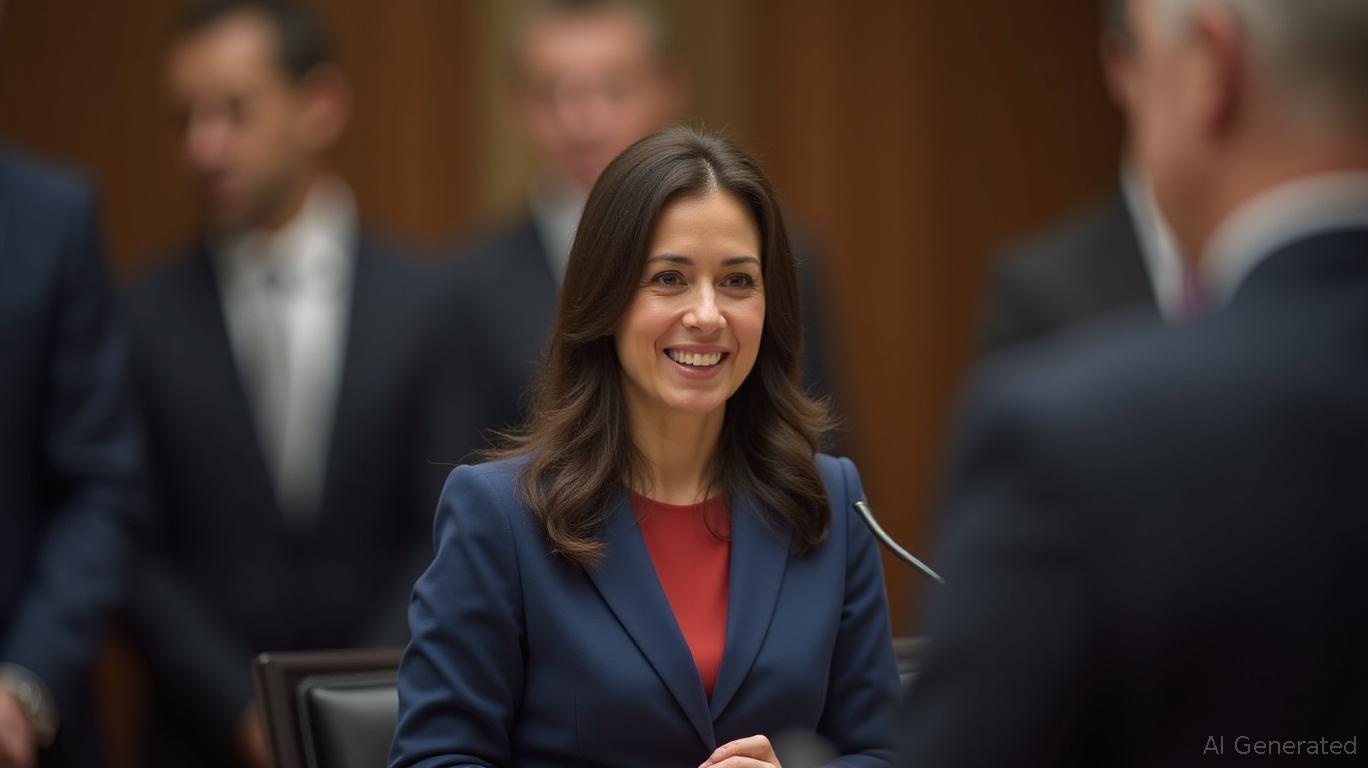OpenAI Adjusts Structure to Balance Profit and Philanthropy in $250 Billion Microsoft Agreement
- Microsoft and OpenAI finalize $250B cloud deal, with Microsoft securing 27% stake in OpenAI's public benefit corporation (PBC). - OpenAI transitions to PBC structure controlled by its nonprofit foundation, gaining operational flexibility while retaining philanthropic alignment. - Microsoft loses cloud service exclusivity but gains 2032 IP rights to AGI models, while OpenAI commits to $250B in Azure services. - Deal boosts Microsoft's market cap above $4 trillion and establishes new industry benchmarks fo
Microsoft (MSFT) and OpenAI have reached a historic $250 billion agreement centered on cloud computing, solidifying their alliance and transforming OpenAI’s organizational framework. As part of the arrangement,
This partnership grants Microsoft extended access to OpenAI’s intellectual property, including AGI-level models, through 2032. However, Microsoft has given up its exclusive right to be OpenAI’s first-choice cloud provider, a clause that had previously limited OpenAI’s collaborations. In return, OpenAI has agreed to spend $250 billion on Azure services over an unspecified timeframe, further establishing Microsoft as OpenAI’s main cloud partner for API-based offerings, as reported by

The reorganization has already influenced the market. Microsoft’s shares climbed by almost 4% after the news broke, boosting its market value past $4 trillion. Experts see the deal as mutually beneficial: OpenAI gains a clearer path for future investments, while Microsoft reinforces its leadership in AI infrastructure. Adam Sarhan, CEO of 50 Park Investments, remarked that the agreement “offers a more transparent route for progress and responsibility,” addressing previous concerns about OpenAI’s nonprofit model.
The financial aspects reveal the magnitude of the collaboration. Since 2019, Microsoft has invested $13.8 billion in OpenAI and now holds over 27% of the PBC on a diluted basis. The OpenAI Foundation maintains a controlling $130 billion stake in the for-profit division, ensuring its charitable objectives remain central. The deal also establishes an independent committee to validate OpenAI’s AGI achievements, and Microsoft’s IP rights are protected through 2032, even if AGI is realized sooner.
The agreement’s impact goes beyond financials. OpenAI’s “Stargate Project,” which involves building data centers across the U.S. with Oracle’s cloud, highlights the company’s expansion plans. Meanwhile, Microsoft’s Azure is expected to benefit from ongoing high-margin business, with analysts predicting its Intelligent Cloud segment could see annual growth between 25% and 37%, according to
Investors remain cautiously hopeful. While Microsoft’s valuation ratios—such as a P/E of 39.81 and a P/S of 14.38—indicate high expectations, figures referenced by
As competition in artificial intelligence accelerates, the Microsoft-OpenAI alliance establishes a new standard for industry partnerships. With Azure taking a leading role in OpenAI’s infrastructure and both companies navigating regulatory and market challenges, the outcome of this collaboration is likely to influence the direction of AI development for years ahead.
Disclaimer: The content of this article solely reflects the author's opinion and does not represent the platform in any capacity. This article is not intended to serve as a reference for making investment decisions.
You may also like
Deutsche Bank and DWS Support EURAU's Multichain Growth in Line with MiCA Regulations
- AllUnity's EURAU, a MiCA-compliant euro-pegged stablecoin, expanded cross-chain capabilities via Chainlink's CCIP to support Ethereum, Solana, and other major blockchains. - Backed by Deutsche Bank and DWS, EURAU aims to enhance B2B payments and treasury management while complying with EU regulations requiring reserve audits and transparency. - The expansion positions EURAU as a euro-centric alternative to dollar-dominated stablecoins, aligning with EU efforts to reduce reliance on foreign payment system

Selig's Nomination Seeks to Close the Gap Between SEC and CFTC on Crypto Issues
- Smithfield Foods shares rose 6.8% premarket after reporting $3.7B Q3 sales (+12.4% YoY), driven by strong demand across meat segments and $0.58 non-GAAP EPS exceeding estimates. - Indian firms Suraj Estate (+4% net profit) and TTK Prestige (+21.5% net profit) reported mixed Q2 results, with Suraj's pre-sales surging 89% but EBITDA margins declining. - Shenandoah Telecommunications raised annual dividend 10% to $0.11/share, while Trump's nomination of SEC's Selig to CFTC aims to unify crypto regulation be

Tariff Impact Hits Retail: Carter's Shuts 150 Stores, Reduces Staff by 15%
- Carter's Inc. is closing 150 stores and cutting 15% of its office workforce due to tariffs and sourcing shifts, impacting $110M in annual sales. - The restructuring aims to save $35M annually by 2026 through store closures and cost cuts, but Q3 profits fell to $39M from $77M amid rising costs and tariffs. - Despite a 14.5% stock drop, UBS raised its price target to $33, citing strong liquidity, while the company faces Amazon-driven competition and declining Simple Joys sales. - Carter's monitors potentia

Bitcoin News Update: Institutional Endorsement Fuels Bitcoin Cash Surge Beyond $550
- Bitcoin Cash (BCH) surged past $550 in early October 2025, driven by a 328% trading volume spike signaling strong institutional and retail participation. - Technical indicators confirmed an uptrend with consolidation between $553-$556, supported by higher lows and bullish RSI/MACD readings. - T. Rowe Price's BCH ETF inclusion and reduced Mt. Gox liquidation fears validated institutional confidence, while futures open interest rose 13.8% to $382.96M. - A $565.1 breakout could target $651, but a drop below
